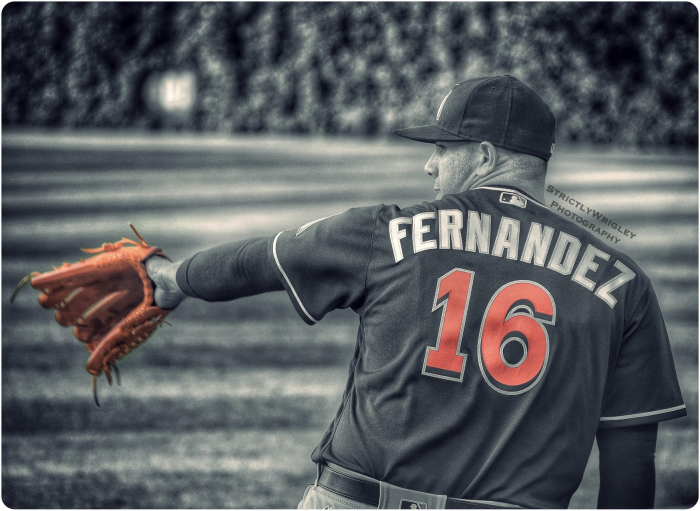On September 25, 2016, roughly five hours after the Miami Marlins played the Atlanta Braves at Marlins Park in Miami, Florida, Marlins' 24-year-old starting pitcher Jose Fernandez was killed.
Horrific news to report this morning, multiple people inform me that Marlins' pitcher Jose Fernandez was killed in a boating accident.
— Andy Slater (@AndySlater) September 25, 2016
The news was broken first by Andy Slater, a talk show host and TV personality in Miami. ESPN then broke the news at around 9:00 AM ET when news anchor Hannah Storm confirmed that Fernandez was tragically killed in a boating accident along with two friends.
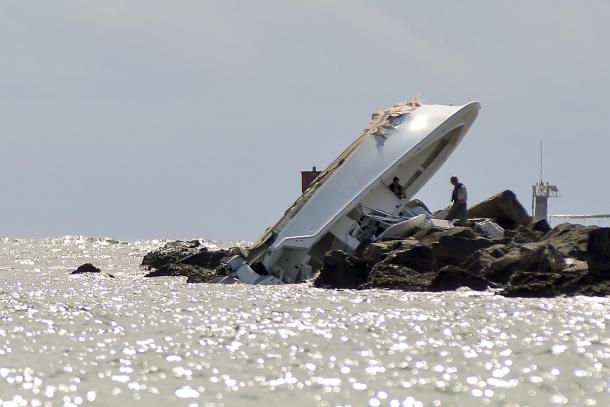
Fernandez’s death was not only a tragic loss for baseball, but it was devastating for the Cuban and Latino communities of southern Florida and his hometown of Santa Clara, Cuba. Fernandez defected from his native country in 2007 after three previous failed attempts. Each one came with a prison term; Fernandez was jailed three times before he successfully arrived in the United States. Many Cubans who have fled the communist country have lived to tell their stories of how they got to America -- how hard it was to successfully defect and how mentally and physically draining it is. Jose Fernandez’s story, however, is unlike any other.
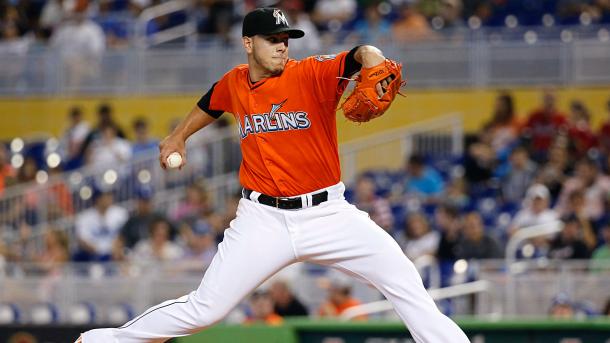
Successfully Defecting
Jose Fernandez, his mom Maritza and his sister Yadenis Jimenez all successfully defected and made it to America in 2008. Fernandez, Maritza, and Yadenis fled Cuba via speedboat; the boat was headed to Mexico initially until the high waters roughed up the boat and sent his mother overboard. Fernandez, 15 at the time, jumped in and saved his mother and then proceeded on to their destination. Not to mention that Jose dodged repeated gunfire from US Coast Guard Police in the process. When he began playing professionally Fernandez was asked several times about the defecting experience; he’s quoted in 2009 saying, “I thought I was going to die many times”.
Fernandez’s way to the US was just one of the ways Cuban baseball players arrived. Many ballplayers attempting to play in MLB often choose not to defect to the United States, because establishing residency in America means they have to enter the MLB Draft. If they choose to defect to another country, they can become free agents and choose an offer.
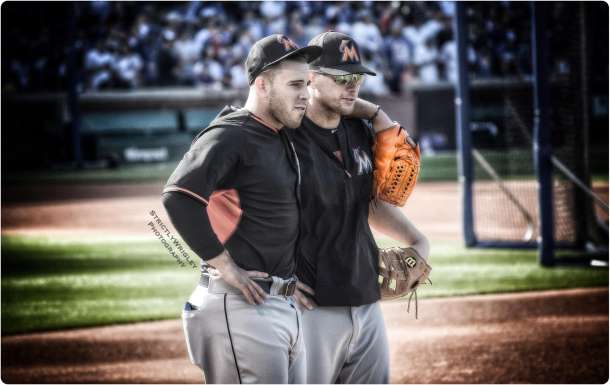
Fernandez’s arrival to the United States
Fernandez, his mother, and sister arrived in Tampa, Florida in 2008. Ramon Jimenez, Jose's stepfather -- who isn't mentioned in most stories -- arrived in the United States before the rest of the family. He had defected from Cuba in 2005 and eventually moved to Tampa, a home to many defected Cubans and Latino immigrants. Upon his arrival to the United States, Fernandez had one goal in mind, to play baseball in the majors. Like many Cubans, the goal and dream of playing in MLB is common. As newcomers to the United States, many Cubans have no sense of direction as far as where to go and how to start their journey. For Fernandez, playing professionally was all he wanted. He was lucky enough to have known a coach already in the Tampa area, Orlando Chinea, who had worked with and trained many of Cuba’s top pitchers in the past.
Cultural Impact
Jose’s stats from his short career are quite impressive. However, the most important role he played was the liaison between the game of baseball and the Latino and Cuban community. Jose was great at what he did, but baseball wasn't what truly made him special. It was his passion, intensity, and spirit -- baseball was just the platform he used to express himself.
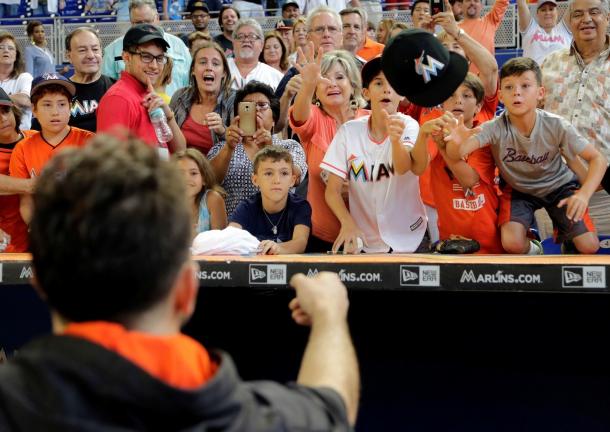
Each and every citizen of the Cuban and Latino community has a story, a journey, a dream; Jose exemplified the passion, hard work and success that each and every Cuban could hope for.
In a New York Daily News article, Katie Ackert asked members of the Miami community about how much of an impact Jose had on them. “He came from Cuba just like we did, he is a part of our community,” said Maria Falls. She later mentioned that her entire family of five came to Marlins Park Sunday morning in their orange Fernandez jerseys to pay respect. As she wiped away some tears, Falls added; “it’s like part of our family is gone”. Falls' story is just one of the many that are very similar amongst the Marlin fan base.
Jorge Ebro, beat writer for El Nuevo Herald in Miami said, “Many years ago I was a sports reporter. During that time I got to interview and met a lot of athletes in all sports. I can honestly say, I’ve never seen a community embrace a player as this one embraced Fernandez.”Ebro also went on record for saying that he’s never ran into a player that had the zest for life that Jose did. The interesting thing is that Ebro never actually met Fernandez, but his exuberance and joy jumped out of the TV and in each of his interviews. “Jose could make a loss seem okay,” said Ebro.
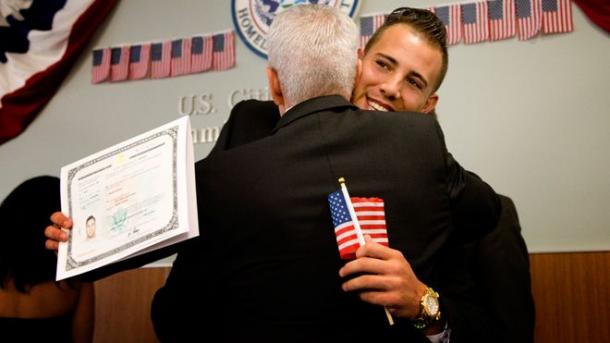
So why was Fernandez so happy and high on life? Perhaps what he’s been through in order to get to America -- he finally became a citizen in 2015. Perhaps it was all those years he spent living under oppression and communism in Santa Clara, Cuba. Perhaps it was his three failed attempts to defect before being successful. Fernandez was beyond grateful for every opportunity ever given to him since he arrived.
Local News Outlets Remember Fernandez
VAVEL USA was privileged enough to interview Miami Marlins beat reporter Tom D’Angelo of the Palm Beach Post.
VAVEL USA: When you found out about the tragic news that Jose Fernandez had been killed, what was your initial reaction?
D’Angelo: "Well it was absolutely shocking; when I heard earlier reports I didn’t believe it. With all of the celebrity rumored deaths that turn out to be a hoax, I figure that was what was going on with Fernandez. When it was confirmed, I was just in shock. I thought of Jose the person more than Jose the baseball player and a young life that was taken away at such a young age. You can’t really react to something of this nature -- it’s just so sad. Another thing to remember was that there were two other young men on that boat that had the same fate and they both were around José’s age. You start thinking about three young men, three families and what those families have to go through the grieving and it's just a really sad time."
VAVEL USA: Describe the emotions during the press conference shortly after the news broke of Fernandez’s death, not only the emotions of the players and coaches but the emotions of the media who spent each and every day with the team?
D’Angelo: "It’s very difficult but you have to separate being overemotional and doing your job because we had a press conference to cover. It was very difficult to hear Don Mattingly (head coach) try to speak, Michael Hill (president of baseball operations) try to speak and Martin Prado. All of them were all overwhelmed with emotion, David Samson was a rock. He was wonderful speaking about it, [but] for the others it was difficult. It was difficult to hear but as calloused as it sounds you’ve got to do what you have to do and you do your job. It’s a very difficult thing to write about, it was difficult to hear and I can’t imagine what it’s like for people who deal with this every day in their jobs. When we get a taste of this every once in a while it’s hard to comprehend, just like what happened this week which was utterly devastating."
VAVEL USA: What were your interactions like with Jose, describe the vibe and energy that he brought to a room full of people?
D’Angelo: "I never really had a friend relationship with him; it was more of a working relationship. When around those guys a lot as beat writers no matter what sport you cover you’re going to have some one on one interaction. As far as Jose, I really don’t think I’ve ever seen anybody who enjoyed playing the game as much. He was like a kid; Don Mattingly put it perfectly when he said that he played with the spirit of a little leaguer. The only time you didn’t see him smiling was when he was in competition because he was such a competitor. I saw him smiling all the time from spring training on until his last start when he was not pitching he was cheering his team on banging on the dugout railing when something good happens for the Marlins. He was the first guy to congratulate a player when they have done something good. When he was pitching he was a competitor, we knew from the very first time we talked to him after he was drafted that he was determined to become one of the best pitchers in all of baseball and he did that."
VAVEL USA: Describe his impact on the Cuban and Latino population in southern Florida as it went far beyond baseball?
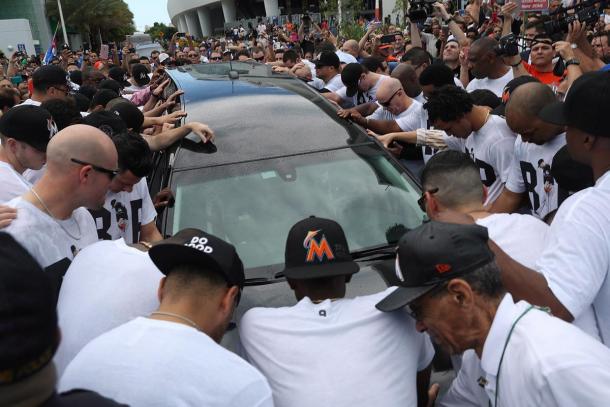
D’Angelo: "You’re absolutely right; it did go far beyond baseball. The way I describe is that he was a son to the city of Miami; they lost a son in that Cuban community. This would be a devastating loss if it was anybody, any athlete, any superstar or any celebrity. However, this happened to the one guy who absolutely became a part of the fabric of Florida because of his background. He wasn’t born in Miami, he wasn’t raised in Miami, but he was as close to that of Miami as anybody who’s ever played. Many of those people in the Miami area who looked at him as a son, they weren’t born in Miami either. Many of them came over from Cuba and so he could share the same story as them. It was a loss to the community, a loss that is comparable to losing a son."






































